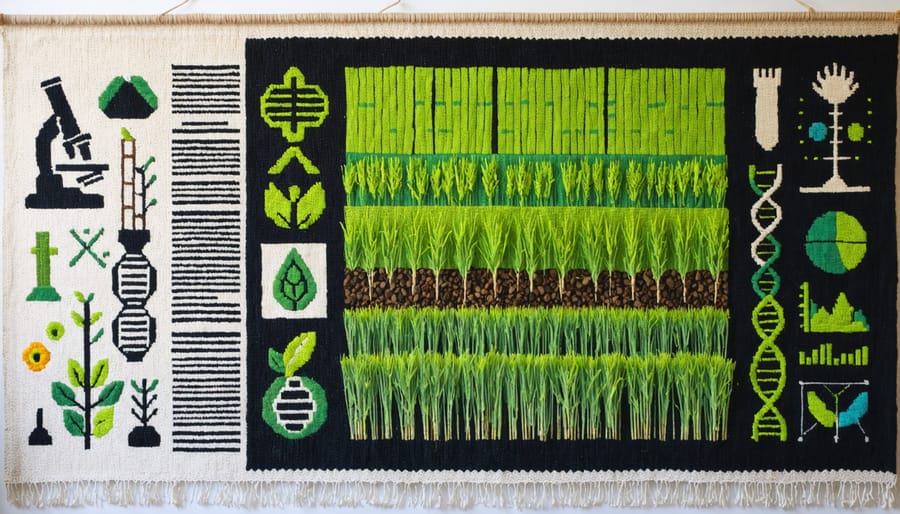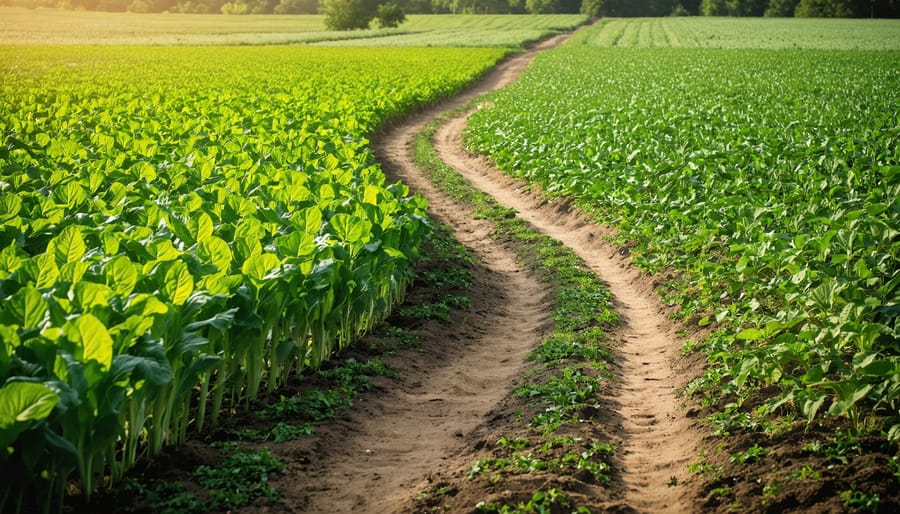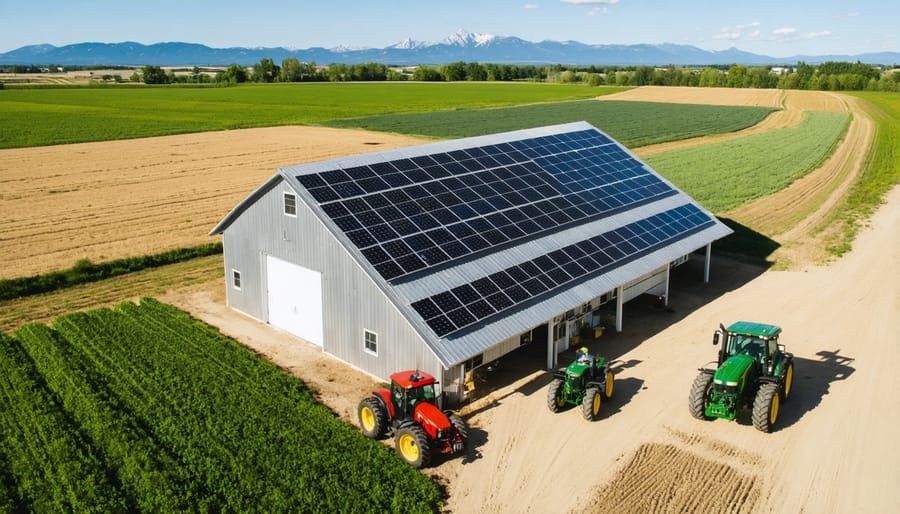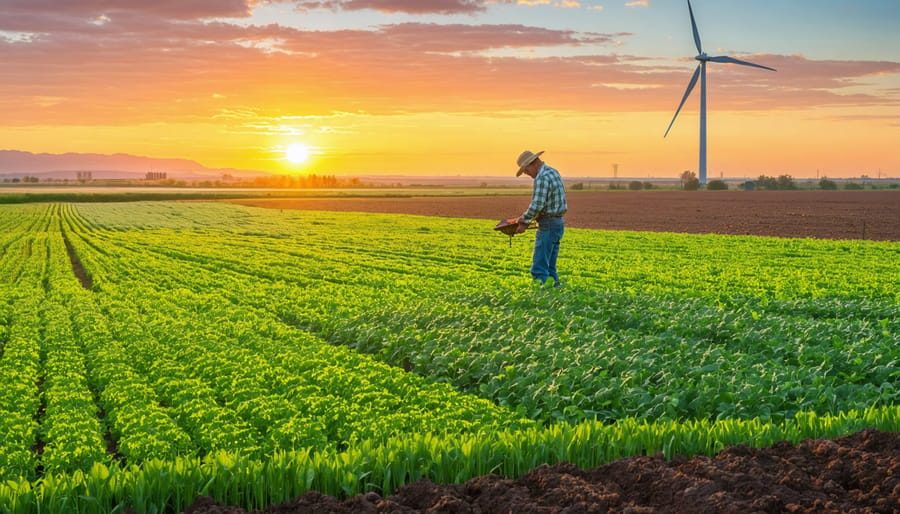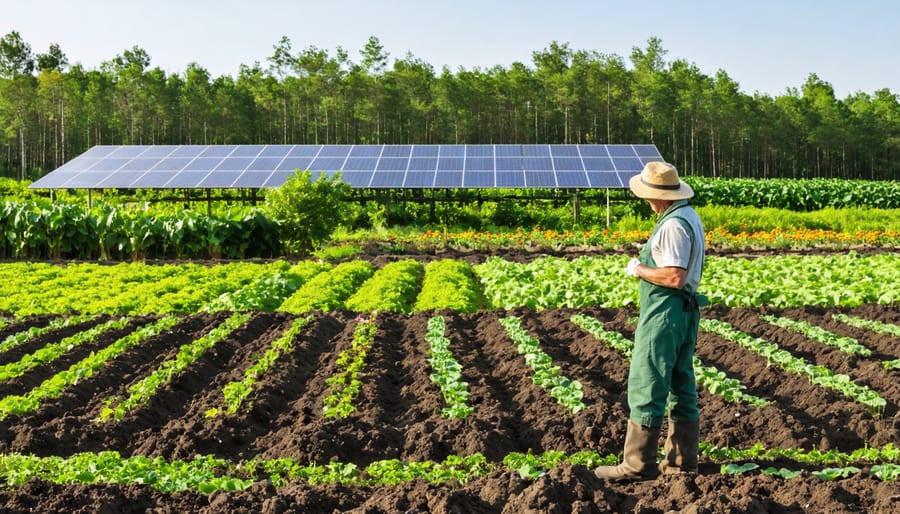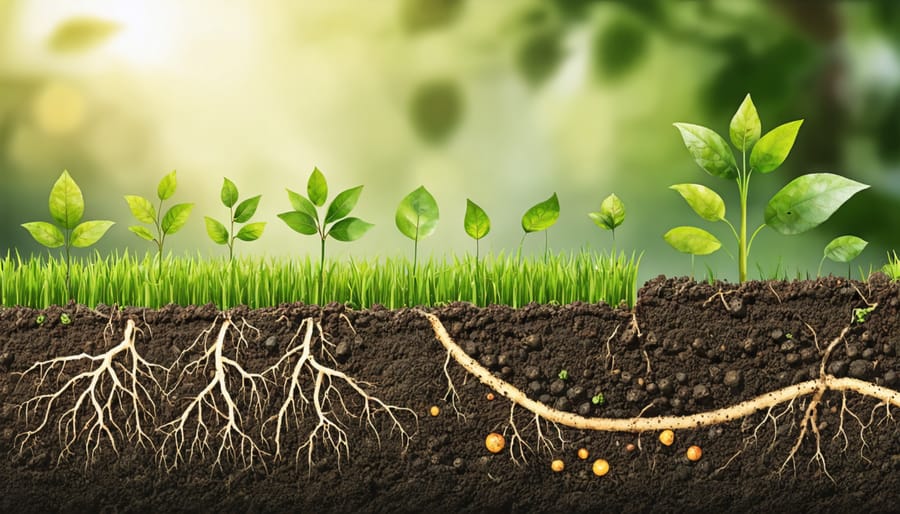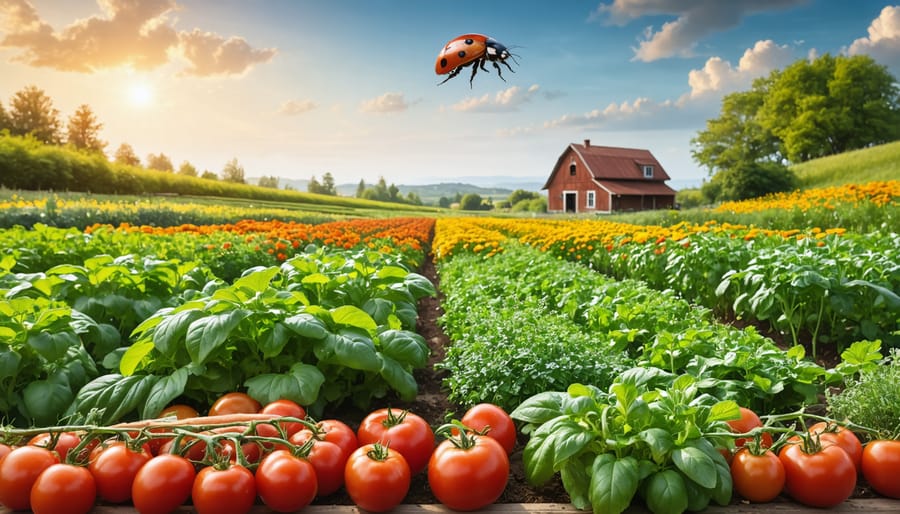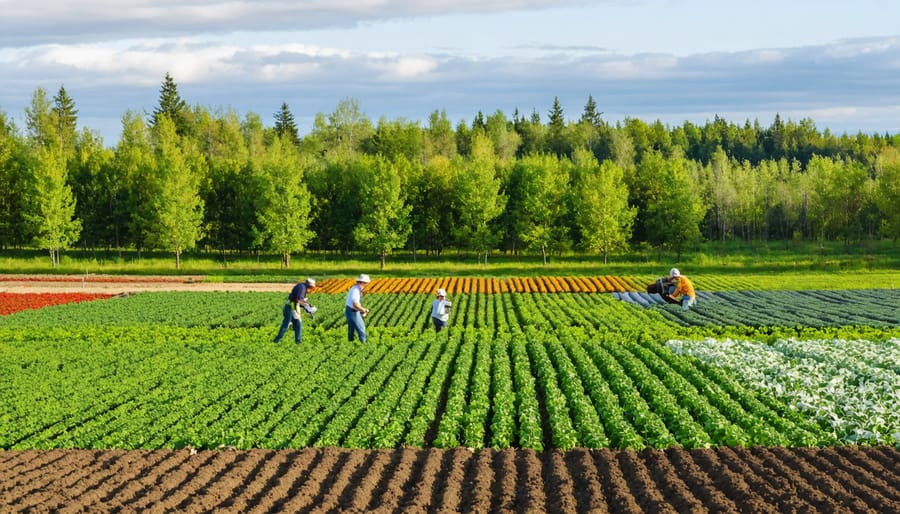Indigenous knowledge, honed over millennia, holds the key to sustainable agriculture. By weaving traditional indigenous agricultural knowledge with modern science, we can unlock powerful solutions for resilient, regenerative farming. This ancient wisdom, rooted in a deep understanding of land and ecosystems, offers invaluable insights into climate-smart practices that nourish both the earth and its people. It’s time to listen to the whispers of the ancestors and forge a path towards a more harmonious relationship with the soil beneath our feet. Together, armed with the combined strength of indigenous knowledge and scientific innovation, we can cultivate a future where our fields flourish, our communities thrive, and our planet breathes a sigh of relief.
Traditional Ecological Knowledge
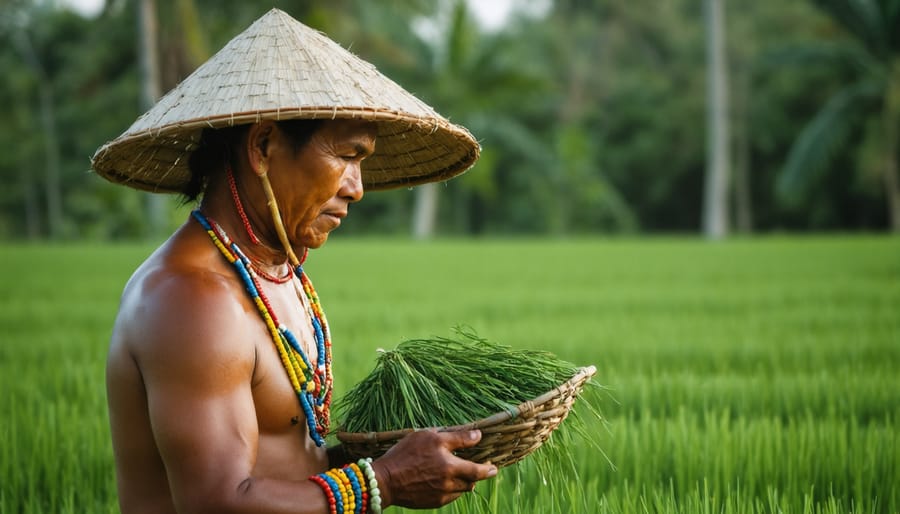
Crop Rotation and Companion Planting
Indigenous farming practices like crop rotation and companion planting have been used for centuries to maintain soil health and prevent pests. Crop rotation involves alternating crops each season to avoid nutrient depletion and break pest cycles. For example, planting legumes like beans after heavy feeders like corn replenishes nitrogen in the soil. Companion planting pairs crops that benefit each other, such as the “Three Sisters” method of growing corn, beans, and squash together. The corn provides a trellis for the beans, which fix nitrogen, while the squash suppresses weeds and retains moisture. These traditional techniques are still relevant for modern farmers seeking to reduce reliance on synthetic inputs. By adopting indigenous knowledge, Canadian growers can build soil fertility, minimize pest pressure, and create diverse, resilient agricultural systems that sustain both land and communities. Integrating these time-tested strategies with current scientific understanding offers a path forward for sustainable agriculture rooted in cultural wisdom and ecological harmony.
Natural Pest and Weed Control
Indigenous agricultural practices have long employed natural methods to manage pests and weeds, promoting sustainable crop production without relying on harmful chemicals. One such technique is intercropping, where multiple crops are grown together to confuse pests and reduce their spread. For example, the Haudenosaunee people of Eastern Canada traditionally planted the “Three Sisters” – corn, beans, and squash – together, as the strong odors from the squash deter pests while the beans fix nitrogen in the soil.
Another effective indigenous method is the use of natural repellents like cedar boughs, which can be placed around crops to ward off insects. The Secwepemc people of British Columbia have traditionally used this approach to protect their crops. Companion planting is also a powerful tool, as certain plants like marigolds and nasturtiums can attract beneficial insects that prey on pests. By embracing these time-tested Natural Pest and Weed Control strategies, farmers can maintain healthy crops while preserving the environment and honoring indigenous knowledge. The sharing of this wisdom not only benefits agricultural practices but also strengthens the connection between indigenous communities and the land they have stewarded for generations.
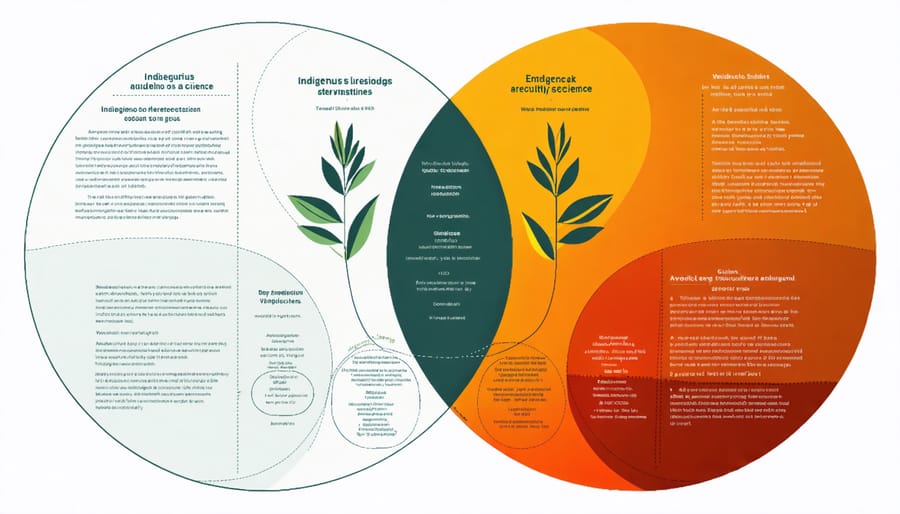
Merging Indigenous Wisdom and Modern Science
Case Studies from the Canadian Prairies
Here are two inspiring examples of farmers in Alberta who have successfully integrated indigenous agricultural practices into their operations:
John Desjarlais, a Métis farmer near Lac La Biche, uses permaculture principles influenced by his ancestors’ traditional knowledge. By planting complementary crops, using natural pest control methods, and enriching the soil with organic matter, John has created a thriving, resilient farm that works in harmony with nature. His farm serves as a model for other farmers looking to adopt more sustainable practices.
The Stoney Nakoda First Nation near Calgary has launched a community initiative to revive traditional seed saving practices. By collecting, preserving, and sharing heirloom seeds that have been passed down for generations, they are safeguarding biodiversity and promoting food sovereignty. The project not only benefits the environment but also strengthens cultural ties and knowledge sharing within the community. Their success has inspired neighboring farms to establish seed libraries and collaborate on conservation efforts.
These case studies demonstrate how integrating indigenous knowledge with modern farming techniques can lead to more sustainable, resilient agricultural systems while also preserving cultural heritage. By learning from and working with indigenous communities, farmers across the Canadian Prairies can help build a more secure and environmentally friendly food future.
Collaborative Research and Knowledge Sharing
Indigenous knowledge and modern scientific research can create powerful synergies when combined effectively. By collaborating with indigenous communities, scientists gain valuable insights into sustainable agricultural practices that have been honed over generations. This knowledge, rooted in a deep understanding of local ecosystems, can inform the development of innovative farming techniques tailored to specific regions.
In Alberta, partnerships between researchers and First Nations communities have yielded promising results. For example, the University of Calgary has worked with the Blackfoot Confederacy to study traditional land management practices, such as controlled burning, which can help restore soil health and biodiversity. These collaborative projects not only advance sustainable agriculture but also foster a sense of trust and respect between indigenous communities and the scientific establishment.
Knowledge sharing is a two-way street in these collaborations. While scientists learn from indigenous wisdom, they also have the opportunity to share their findings with indigenous communities. This exchange can help bridge the gap between traditional and modern approaches, empowering indigenous farmers to adapt their practices in the face of changing environmental conditions. By working together, scientists and indigenous communities can co-create a more sustainable and resilient agricultural future for all Canadians.
Empowering Indigenous Communities
Youth Education and Mentorship Programs
Indigenous communities across Canada are taking proactive steps to ensure that traditional agricultural knowledge is passed down to younger generations. Through youth education and mentorship programs, elders and experienced farmers are sharing their wisdom and practical skills with enthusiastic young learners. These initiatives often take the form of hands-on workshops, field trips, and apprenticeships, where participants gain a deep understanding of indigenous farming methods and their connection to the land. By engaging youth in these immersive learning experiences, indigenous communities are not only preserving their cultural heritage but also fostering a new generation of environmentally conscious farmers. As these young people grow and become leaders in their own right, they will be well-equipped to integrate traditional knowledge with modern agricultural science, creating a more sustainable and resilient food system for all Canadians.
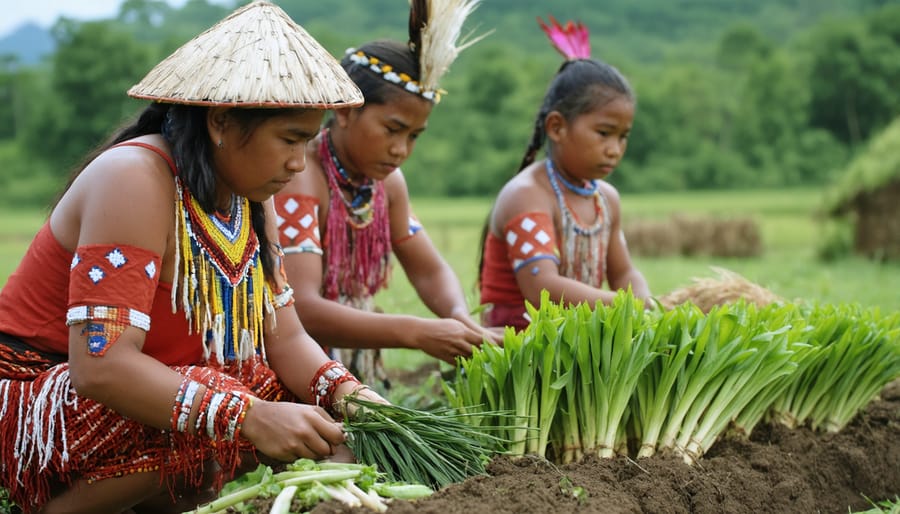
Strengthening Food Sovereignty and Security
Indigenous agricultural practices play a vital role in strengthening food sovereignty and security in local communities. By utilizing traditional knowledge passed down through generations, indigenous farmers have developed resilient and sustainable food systems that are well-adapted to their specific environments. These practices often involve companion planting, crop rotation, and the use of heirloom seed varieties, which promote biodiversity and reduce reliance on external inputs. Indigenous methods also prioritize soil health, using techniques such as no-till farming and the application of organic matter to maintain fertility and moisture retention. By integrating these time-tested practices with modern scientific understanding, Canadian farmers can create more resilient local food systems that are better equipped to withstand the challenges posed by climate change and other environmental stressors. Embracing indigenous agricultural knowledge not only contributes to food security but also helps to preserve cultural heritage and promote a deeper connection to the land.
In conclusion, indigenous knowledge science offers valuable insights and practices that can greatly benefit modern sustainable agriculture. By embracing traditional wisdom alongside scientific advancements, farmers can develop more resilient, diverse, and environmentally-friendly agricultural systems. The examples from indigenous communities across Canada demonstrate the effectiveness of these methods in preserving soil health, conserving water, and promoting biodiversity.
As we face the challenges of climate change and the need for sustainable food production, it is crucial that we recognize and respect the contributions of indigenous knowledge. By fostering collaboration between indigenous communities, farmers, and researchers, we can create a more inclusive and holistic approach to agriculture that benefits both people and the planet.
We call upon farmers, agricultural professionals, and all those interested in sustainable practices to actively seek out and learn from indigenous knowledge. Engage with indigenous communities, attend workshops and events, and be open to incorporating traditional methods into your farming practices. Together, we can build a more sustainable and equitable future for Canadian agriculture, one that honors the wisdom of the past while embracing the innovations of the present.

